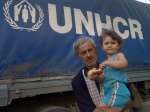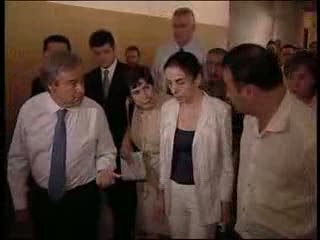- Text size
 |
|  |
|  |
| 
- Français
Ogata renews appeal for release of Vincent Cochetel
Press Releases, 23 July 1998
Friday, 24 July, will mark 6 months since UNHCR staff member Vincent Cochetel was abducted by armed men from his residence in Vladikavkaz, North Ossetia. Cochetel, the head of UNHCR's office in the northern Caucasus, has been held at an unknown location since then.
"It is an outrage that Vincent Cochetel is still held hostage," said High Commissioner Sadako Ogata. "I appeal to the kidnappers to release him immediately. My heart goes out to his wife and his young daughters, and to his other family members and friends around the world who anxiously await his release."
UNHCR has maintained daily contact with Russian and Ossetian authorities in an effort to secure Cochetel's release.
Cochetel's abduction is one in a series of incidents which illustrate the growing dangers of humanitarian work. This month alone, seven UN workers were killed in Afghanistan, in Georgia and in Tajikistan. The proliferation of undisciplined armed groups fighting civil wars in many parts of the world has meant that aid workers trying to help the civilian victims of these conflicts increasingly find themselves in jeopardy.
The case of Vincent Cochetel has struck a chord with aid workers around the world. Staff of many humanitarian organizations – and their family members – joined a silent march organized by UNHCR staff in Geneva on 29 April as a sign of solidarity with Vincent Cochetel. UNHCR field offices around the world organized a variety of events to show their concern.
Before being assigned to Vladikavkaz, Cochetel served in UNHCR offices in Turkey, France and Geneva Headquarters and headed UNHCR's liaison office in the Slovak Republic.
"This is not a political or diplomatic issue. All of us are possible future victims," said Alejandro Henning, the UNHCR staff member who organized the April protest. "We are worried about our colleague, who has been a champion of human rights and who is now deprived of the most basic right: his freedom. Vincent and his family will suffer consequences of this long term abduction even after his release. We are counting the days with them."






























